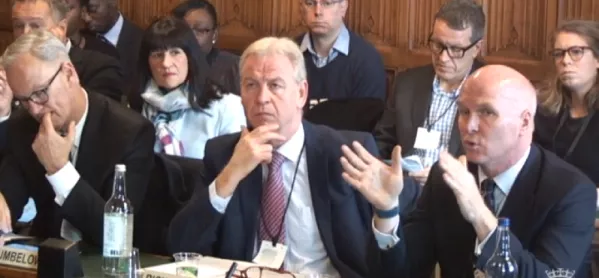Some schools are taking an “overly macho” approach to excluding pupils with SEND, MPs were told today.
The Commons Education Select Committee, which is conducting an inquiry into special educational needs and disability (SEND) education, heard concerns from local authority chief executives that the pressures on schools worked against inclusion in some cases.
The authorities also said they needed powers to place children with special educational needs in certain schools.
Richard Flinton, chief executive of North Yorkshire County Council, told MPs that as well as the accountability system, certain leadership styles acted against inclusion in some cases.
“The pressure on attainment, as opposed to inclusivity, is something that then reflects itself in what we see in terms of excluded young people,” Mr Flinton said.
“There’s also sometimes an overly macho, no-tolerance approach in some schools - and [for] those schools that get into difficulties and are trying to recover from a difficult Ofsted position, it’s almost an easy leadership behaviour that you see in some places.”
Steve Rumbelow, chief executive of Rochdale Borough Council, told the committee that providing for pupils with SEND can “sit quite uncomfortably” with wider school reforms which emphasised more autonomy within schools.
He called for local authorities to have the power to place children in schools, saying: “Fundamentally, there needs to be a duty on the schools to work with the local authority that has a statutory responsibility...There needs to be a duty to provide education in a normal setting, and the LA needs the powers to make sure that happens, and we don’t have those powers.”
Mr Flinton said that the ability for a local authority, rather than a regional school commissioner, to direct a placement into an academy would be “extremely helpful”.
“We have many good academies in North Yorkshire that are very inclusive, but we have some that are more difficult in the wider system, [for which] that kind of power would be very helpful,” he said.
And the current Ofsted inspection criteria does not help, said John Henderson, chief executive of Staffordshire County Council.
He told MPs: “I could give you poor examples of schools which have off-rolled, but I could give you very good examples of where heads are engaging and wanting to keep children on their rolls.
“I think the Ofsted inspection criteria plays against keeping children in mainstream [education]. In Staffordshire, we see too many children in special schools, too many in privately funded education and not enough staying in mainstream.”
The inquiry comes amid growing concerns about “off-rolling” - unofficially excluding pupils.
Recent data from the charity Ambitious about Autism has found that the number of children with autism being excluded from English schools has increased by 60 per cent since 2011, while the overall number of pupils being excluded from school has risen by 4 per cent.





